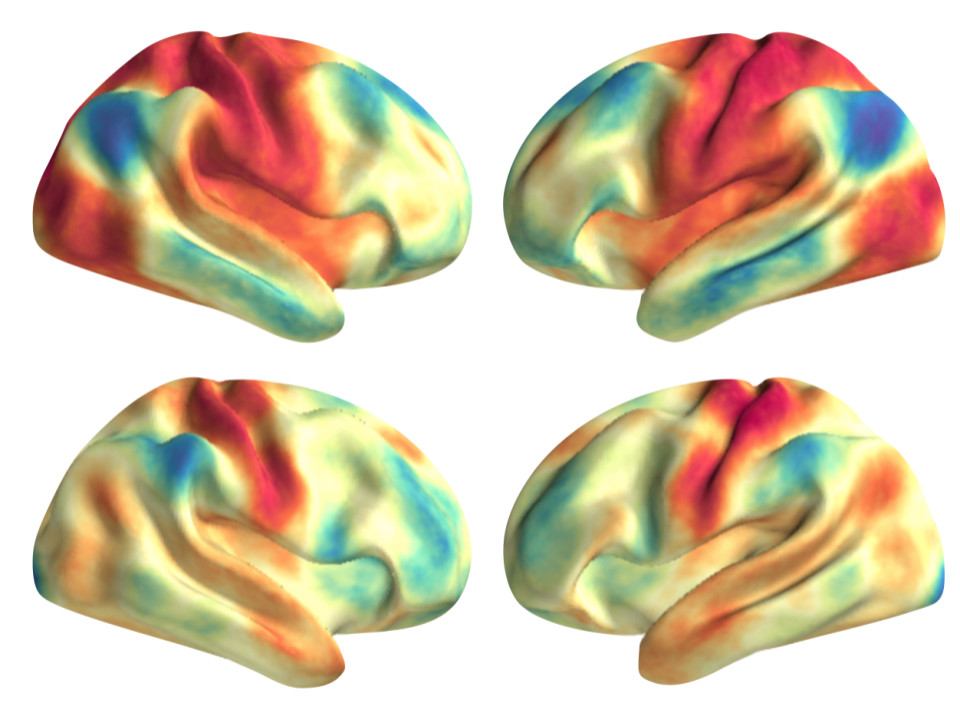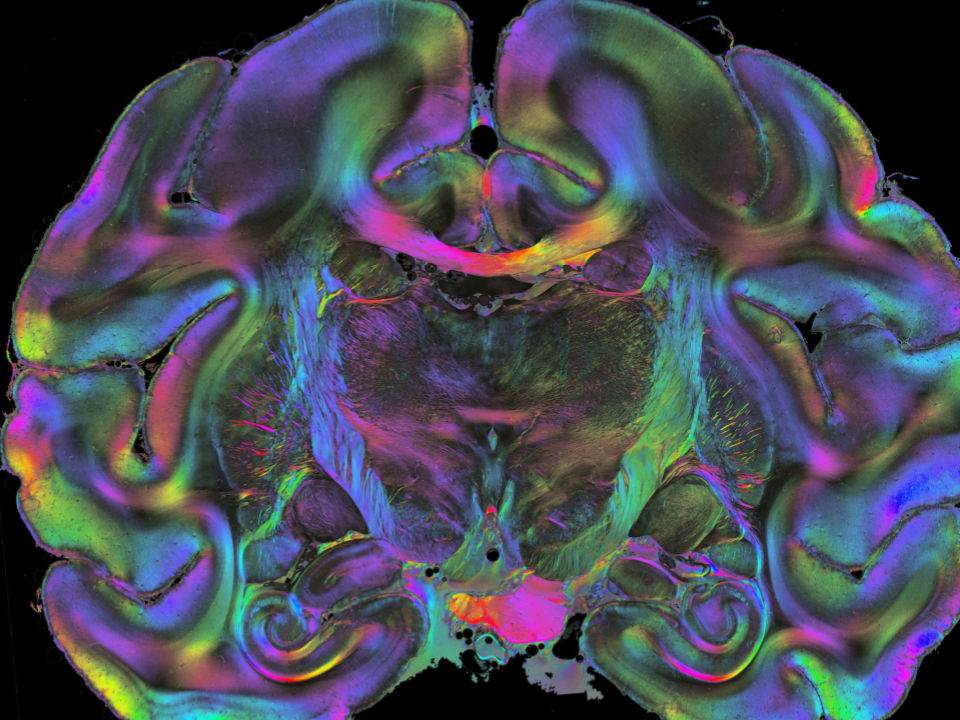Open Neuroimaging Laboratory
Lowering barriers to data and tools for
open collaborative science of the brain.
For an overview, use the arrows.
Next
A Web platform for collaborating on open brain imaging data
The Open Neuroimaging Laboratory is a collaborative platform that facilitates finding, improving, and reusing the massive amount of neuroimaging data available on the Web. This data represents an enormous funding effort and the time and goodwill of thousands of participants: researchers, clinicians, patients, and their families. We want to maximize its use in brain research, medicine, education, and to advance open science.
Our prototype applications transform these static data into "living" matter for collaborative curation and analysis using only a Web browser. No data are downloaded, no software installed. Users can find data, collaborate online, and incrementally improve each other's work. This increases scientific efficiency, improves public data quality, and reduces redundant effort. Our platform lowers the barriers for researchers, students, and citizen scientists to fuel scientific discovery.

Significant investment has been made in collecting and sharing brain imaging data for thousands of individuals. One key challenge, however, limits the usability of this data: In order to work with it, researchers need to download the data locally; and curation, editing and analysis are then done redundantly by each research group. This process is painstaking and a large proportion of the shared data is never analysed, wasting time and funding.
Our virtual neuroimaging laboratory enables using and improving open resources through social collaboration. The laboratory also provides users to find and access public data and metadata, and add to the growing database of accessible data. By lowering the requirements for working on shared data to just a Web browser, it allows not only researchers, but also citizen scientists to contribute to scientific discovery.

Prototype applications to find, access, and improve open data.
BrainBox – a Web app to work with shared brain imaging data directly online. Progress becomes incremental: each researcher's work improves that of the whole community. The community can then tackle projects that would be impossible for individual research groups. BrainBox enables a growing catalogue of all MRI data available online, currently indexing more than 6000 links.
MetaSearch, another Web app, complements BrainBox by providing access to additional metadata about participants (e.g., age, sex, IQ), but also other imaging information (e.g., functional MRI, diffusion fMRI). It harmonizes the disparate sources of information and aggregates these metadata in one place, provides an interactive interface to the user to filter this rich repository of public data, and find data of relevance.

Department of Neuroscience of the Institut Pasteur in Paris. Interested in the development and evolution of the brain. Uses mathematical modelling, MRI and genetics. Studies how genetic and environmental factors determine neuroanatomical diversity. Leads development of Web tools for online collaboration in neuroscience: BrainSpell, Brain Catalogue, and MicroDraw
Max Planck Institute for Human Cognitive and Brain Sciences. A philologist, neuroscientist and an artist. Studies the development of the human brain. Works on projects at the interface between art and neuroscience: The Art of MR. Staging the Connectome, Fire & Wire, and Surf the connectome. 3D functional and structural brain networks in the cloud
Executive Director of EyeWire, a game to map the brain. She has advised The White House OSTP and the US Senate on crowdsourcing and open innovation. She also helped create the world’s first neuroscience virtual reality experience, and curates the NIH 3D Print Exchange Neuroscience. A long time TEDster and founder of the TEDx Music Project.

McGovern Institute for Brain Research at MIT. Works on biomarker development, mobile health platforms, neuroinformatics, and speech communication. A lead architect of the Nipype project, a member of ReproNim, an ardent proponent of distributed Web solutions for data sharing, querying, and computing, and a strong believer in solving problems together.
Help add data, improve data, or develop code